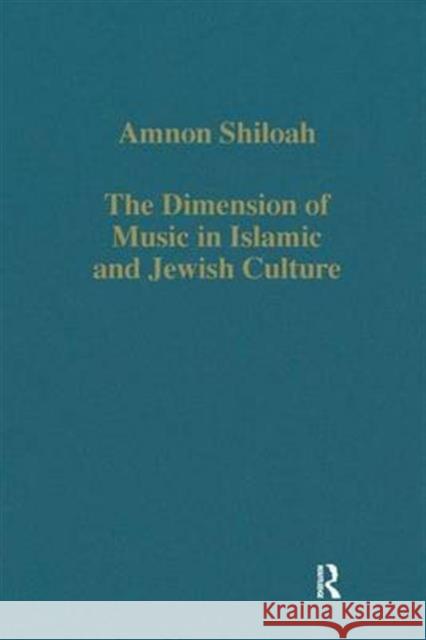The Dimension of Music in Islamic and Jewish Culture » książka
The Dimension of Music in Islamic and Jewish Culture
ISBN-13: 9780860783527 / Angielski / Twarda / 1993 / 336 str.
Though we can no longer hear how it sounded, the written sources that remain provide much information on the music of the medieval Islamic and Jewish worlds, on how it was regarded and on the importance that was attached to it. Amnon Shiloah has been a pioneer in the exploration of these sources, and the present volume brings together some of the results. The opening studies examine, with annotated translations, several key works expounding the meaning of music and its power, in terms of its ethical and therapeutic effects and properties. The following articles focus on scientific writings about music and on the transmission of musical knowledge, while the final section approaches the subject from the angle of religion, noting how the power attributed to music occasioned the distrust of many religious figures, who feared its capacity to deprave and debase its audience. Bien que nous ne puissions plus de nos jours l’entendre, les sources écrites qui ont survécu apportent énormément d’information sur la musique des mondes juifs et islamiques, sur l’importance qui y était attachée et sur son rôle. Le professeur Shiloah est un des pionniers en terme d’exploration de ces sources et le présent volume rassemble un certain nombre des résultats de ses recherches. Les premières études, accompagnées de traductions annotées, font l’examen de plusieurs travaux importants, exposant la signification de la musique et sa puissance de par ses effets et ses propriétés morales et thérapeutiques. Les articles suivants se concentrent sur les écrits scientifiques au sujet de la musique et sur la propagation de la connaissance musicale. La dernière section aborde le sujet à partir de l’aspect de la religion, soulignant combien le pouvoir attribué à la musique entraînait une certaine méfiance de la part d’un certain nombre de religieux, qui craignaient son aptitude à avilir et dépraver ceux qui l’ecoutaient.











